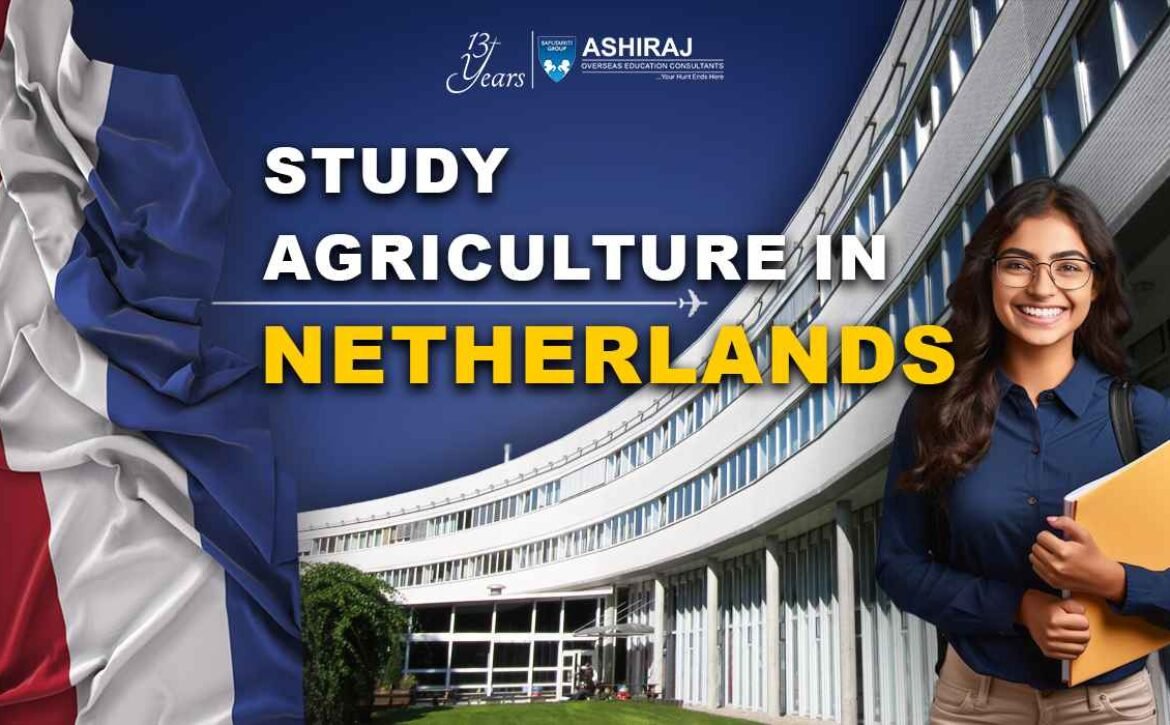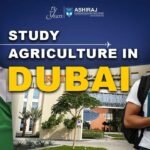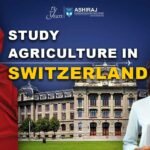
Agriculture in Netherland
Agriculture in NETHERLAND is renowned for its innovation and efficiency, making the country one of the world’s leading exporters of agricultural products despite its relatively small size. The sector is characterized by a high degree of technological advancement, with greenhouses, hydroponics, and precision farming playing significant roles. The Netherlands’ strategic use of technology, combined with sustainable practices, allows for high yields and diverse crop production, including vegetables, flowers, and dairy products. This efficiency has positioned the Netherlands as a global leader in sustainable agriculture, demonstrating how advanced techniques can meet growing food demands while minimizing environmental impact.
Furthermore, agriculture in NETHERLAND benefits from a strong network of research institutions, cooperative farming practices, and robust infrastructure. Dutch farmers have embraced digital tools and data-driven approaches to optimize farming processes and resource management. Additionally, the country’s favorable geographic location and well-developed logistics infrastructure facilitate the swift export of agricultural goods worldwide. These factors collectively contribute to the resilience and success of agriculture in NETHERLAND, making it a model for other nations seeking to enhance their agricultural productivity and sustainability.
Why to Study Agriculture in Netherlands?
- Innovative Agricultural Practices: NETHERLAND is a pioneer in agricultural innovation, utilizing advanced technologies like precision farming and greenhouse cultivation, offering hands-on learning opportunities.
- Top-Ranked Universities: Home to prestigious universities like Wageningen University & Research, known worldwide for their excellence in agricultural and environmental sciences, ensuring high-quality education.
- Diverse Study Programs: Universities in NETHERLAND offer a wide range of programs in agriculture, including sustainable agriculture, agronomy, food technology, and environmental sciences, catering to diverse interests.
- Research Opportunities: Students have access to cutting-edge research facilities and collaborations with industry leaders, fostering innovation and practical solutions to global agricultural challenges.
- International Environment: Studying agriculture in NETHERLAND exposes students to a multicultural environment, enhancing global perspectives and networking opportunities in the field.
- Career Prospects: Graduates from NETHERLAND’s agricultural programs are highly sought after globally, with opportunities in agricultural consultancy, research institutes, agribusiness management, and more.
- Scholarship Opportunities: Various scholarships and funding options are available to support international students pursuing agriculture studies in NETHERLAND, easing financial burdens.
- Sustainable Practices: NETHERLAND emphasizes sustainable agricultural practices, preparing students to address global food security issues and contribute to environmentally responsible farming methods.
- Strategic Location: Located in Europe, NETHERLAND offers proximity to major agricultural markets and opportunities for field visits and internships with leading agricultural companies.
- Quality of Life: With a high standard of living, excellent healthcare, and a safe environment, NETHERLAND provides a conducive setting for academic and personal growth in agriculture.
Top Universities to Study Agriculture in Netherlands
Rank | University | QS World University Rankings 2023 | Type of University | Average Annual Fees | Programs Offered |
1 | Wageningen University & Research | 124 | Public | €2,168 (EU/EEA) | Bachelor’s and Master’s in Agricultural Sciences, Environmental Sciences, Food Technology |
2 | Utrecht University | 112 | Public | €2,168 (EU/EEA) | Bachelor’s in Environmental Sciences, Master’s in Sustainable Development |
3 | University of Groningen | 145 | Public | €2,168 (EU/EEA) | Bachelor’s in Life Sciences, Master’s in Ecology and Evolution |
4 | Leiden University | 131 | Public | €2,168 (EU/EEA) | Bachelor’s in Biology, Master’s in Plant Sciences |
5 | Radboud University | 232 | Public | €2,168 (EU/EEA) | Bachelor’s in Biology, Master’s in Environmental Biology |
Key Highlights:
- Wageningen University & Research is the top-ranked university for Agriculture in NETHERLAND, recognized globally for its contributions to agricultural sciences and sustainability.
- Utrecht University offers a range of programs focused on environmental sciences and sustainable development, emphasizing research and innovation in agriculture.
- University of Groningen provides strong programs in life sciences and ecology, supporting research that contributes to Agriculture in NETHERLAND.
- Leiden University specializes in plant sciences and biology, offering comprehensive education that aligns with advancements in agricultural practices.
- Radboud University emphasizes environmental biology, supporting Agriculture in NETHERLAND through its strong research initiatives in sustainable agriculture and biodiversity.
Course Curriculum for Agriculture in Netherlands
- Introduction to Agricultural Sciences: Students begin with foundational courses in agricultural sciences, covering basic principles of plant and animal biology, soil science, and agronomy.
- Environmental Sustainability: Courses focus on sustainable agricultural practices, environmental impact assessment, and strategies to mitigate climate change effects on agriculture in NETHERLAND.
- Technology and Innovation in Agriculture: Emphasis on the use of advanced technologies such as precision farming, greenhouse technologies, and hydroponics to enhance productivity and sustainability.
- Soil and Water Management: Students learn about soil properties, water conservation techniques, and efficient irrigation methods essential for successful agriculture in NETHERLAND.
- Crop Production and Protection: Detailed study of crop cultivation techniques, pest management, and disease control to ensure high-quality yields.
- Animal Husbandry: Courses cover livestock management, breeding techniques, and animal welfare, crucial for the dairy and meat industries in NETHERLAND.
- Food Technology and Safety: Focus on food processing, quality control, and safety standards to meet global agricultural product demands.
- Agro-economics and Policy: Study of agricultural economics, market trends, and policies affecting agriculture in NETHERLAND.
- Research Methodology: Training in research methods and data analysis, enabling students to conduct innovative research projects.
- Internships and Practical Training: Hands-on experience through internships with leading agricultural firms and research institutions, providing real-world application of theoretical knowledge.
Eligibility Criteria & Admission Requirements for MS in Agriculture in Netherlands
- Educational Qualifications: Applicants must have completed secondary education equivalent to the Dutch pre-university diploma (VWO) for undergraduate programs. For postgraduate programs, a relevant bachelor’s degree is required.
- Language Proficiency: Non-native English speakers must provide proof of English proficiency.
Test | Minimum Score Required |
IELTS | 6.5 |
TOEFL | 90 (internet-based) |
- Standardized Test Scores: For certain postgraduate programs, applicants may need to submit GRE or GMAT scores.
Test | Minimum Score Required |
GRE | 300 |
GMAT | 600 |
- Passport & Student Visa: A valid passport and a student visa are mandatory for international students. Applicants should apply for a student visa well in advance.
- Academic Certificates: Copies of academic transcripts and certificates must be submitted as part of the application process.
- Work Experience: While not always mandatory, relevant work experience can enhance an applicant’s profile, especially for postgraduate programs.
- Motivation Letter: A detailed motivation letter outlining the applicant’s interest in Agriculture in NETHERLAND and career goals is required.
- Letters of Recommendation: Applicants should provide letters of recommendation from academic or professional references to support their application.
- Financial Proof: Proof of sufficient financial means to cover tuition fees and living expenses during the study period in NETHERLAND.
- Interview: Some programs may require an interview as part of the admission process to assess the applicant’s suitability for the program.
Documents Required for Studying Agriculture in Netherlands
- Passport: A valid passport is essential for identification and visa purposes. Ensure it is valid for the entire duration of your study period.
- 2 Letters of Recommendation (LOR): Obtain two letters of recommendation from academic or professional references to support your application for Agriculture in NETHERLAND.
- Statement of Purpose (SOP): Write a detailed Statement of Purpose explaining your interest in studying Agriculture in NETHERLAND, your career goals, and why you chose the specific program and university.
- Curriculum Vitae (CV): Prepare a comprehensive CV outlining your academic background, work experience, and any relevant skills or extracurricular activities.
- Official High School Transcripts: Submit certified copies of your high school transcripts, showing your grades and courses completed. For postgraduate programs, include your bachelor’s degree transcripts as well.
- Certificates: Provide copies of your academic certificates, including diplomas and any relevant qualifications related to Agriculture in NETHERLAND.
- Work Experience Certificate: If applicable, include a certificate or letter from your employer detailing your work experience, particularly if it is relevant to agriculture.
- Proof of Financial Resources: Demonstrate that you have sufficient financial means to cover tuition fees and living expenses. This could include bank statements, scholarship letters, or a financial guarantee from a sponsor.
- Language Proficiency Test Scores: Provide proof of English proficiency through IELTS or TOEFL scores, as required by the university.
- Application Form: Complete the university’s application form accurately and submit it along with the required documents by the specified deadline.
Admission Process for Agriculture in Netherlands
- Research Programs and Universities: Begin by researching the best universities and programs for Agriculture in NETHERLAND. Consider factors like curriculum, faculty, and university rankings.
- Check Eligibility Requirements: Ensure you meet the academic and language proficiency requirements (e.g., IELTS, TOEFL) for the chosen program. Verify if GRE or GMAT scores are needed for postgraduate applications.
- Prepare Required Documents: Gather all necessary documents, including your passport, academic transcripts, certificates, 2 LOR, SOP, CV, work experience certificates, and proof of financial resources.
- Submit Online Application: Complete the online application form available on the university’s official website. Upload all required documents and pay the application fee, if applicable.
- Language Proficiency Test: Register for and take the IELTS or TOEFL test. Ensure your scores meet the program’s minimum requirements.
- Standardized Tests (if required): If applying for a postgraduate program, register for and take the GRE or GMAT exam. Ensure your scores are sent to the universities you are applying to.
- Await Response: After submission, wait for the university’s admission committee to review your application. This may include an interview process.
- Receive Admission Offer: If accepted, you will receive an offer letter from the university. Carefully read through the offer and accept it by the given deadline.
- Apply for Student Visa: Once you accept the offer, apply for a student visa. Submit your passport, admission letter, financial proof, and other required documents to the Dutch consulate.
- Prepare for Arrival: Make travel arrangements, find accommodation, and prepare for your studies in Agriculture in NETHERLAND.
“Education is the most powerful weapon which you can use to change the world.”
Nelson Mandela
Cost of Agriculture Course in Netherlands
- Tuition Fees: For EU/EEA students, the average annual tuition fee for undergraduate programs in Agriculture in NETHERLAND is approximately €2,200. For non-EU/EEA students, the fees range from €6,000 to €15,000 per year.
- Living Expenses: Monthly living expenses, including accommodation, food, transportation, and other personal costs, average around €800 to €1,200. This varies depending on the city and lifestyle.
- Accommodation: Student housing can cost between €300 and €600 per month. University dormitories are typically cheaper than private apartments.
- Health Insurance: Health insurance is mandatory for international students. Costs range from €40 to €100 per month, depending on the coverage and provider.
- Study Materials: Books and other study materials for Agriculture in NETHERLAND programs can cost around €300 to €600 per year.
- Transportation: Public transportation costs approximately €35 to €70 per month. Many students opt for a bicycle as a cost-effective mode of transport.
- Visa and Residence Permit: The student visa and residence permit application fee is approximately €192.
- Miscellaneous Costs: Additional expenses for leisure, clothing, and unforeseen costs can amount to €100 to €200 per month.
- Financial Aid and Scholarships: Various scholarships and financial aid options are available for international students to help offset the cost of studying Agriculture in NETHERLAND.
- Part-time Work: International students are allowed to work part-time, which can help in managing living expenses. EU/EEA students can work freely, while non-EU/EEA students have restricted hours.
Scholarships for Agriculture Courses in Netherlands
Scholarship Name | Amount (EUR) | Eligibility Criteria | Application Deadline |
Holland Scholarship | €5,000 | Non-EU/EEA students, outstanding academic record | May 1 |
Orange Tulip Scholarship | Varies | Non-EU/EEA students, high academic performance, country-specific | March 1 |
Erasmus Mundus Scholarships | Full tuition + stipend | International students, enrolled in Erasmus Mundus programs | Varies |
Wageningen University Excellence Scholarship | Full tuition + living expenses | Non-EU/EEA students, outstanding academic achievement | February 1 |
Utrecht Excellence Scholarship | Full tuition + €11,000 | Non-EU/EEA students, top academic performers | January 31 |
Amsterdam Merit Scholarship | €6,000 – €21,000 | Non-EU/EEA students, excellent academic performance | January 15 |
Radboud Scholarship Program | Partial tuition | Non-EU/EEA students, high academic standing | March 1 |
Leiden University Excellence Scholarship | €10,000 – €15,000 | Non-EU/EEA students, academic excellence | February 1 |
Key Points:
- Holland Scholarship: Aimed at non-EU/EEA students, offering €5,000 for the first year of studies in Agriculture in NETHERLAND. Application deadline: May 1.
- Orange Tulip Scholarship: Varies in amount, targeting high-performing non-EU/EEA students. Application deadline: March 1.
- Erasmus Mundus Scholarships: Cover full tuition and provide a stipend, available for international students in Erasmus Mundus programs. Deadlines vary by program.
- Wageningen University Excellence Scholarship: Covers full tuition and living expenses for outstanding non-EU/EEA students. Application deadline: February 1.
- Utrecht Excellence Scholarship: Offers full tuition plus €11,000 for non-EU/EEA students with top academic records. Application deadline: January 31.
- Amsterdam Merit Scholarship: Provides €6,000 to €21,000 to excellent non-EU/EEA students. Application deadline: January 15.
- Radboud Scholarship Program: Offers partial tuition waivers for high-achieving non-EU/EEA students. Application deadline: March 1.
- Leiden University Excellence Scholarship: Grants €10,000 to €15,000 for academically excellent non-EU/EEA students. Application deadline: February 1.
Career Opportunities After Agriculture in Netherlands
Job Profile | Average Salary (EUR/year) | Description |
Agricultural Scientist | €45,000 – €65,000 | Conducts research to improve agricultural productivity and sustainability. |
Agronomist | €40,000 – €60,000 | Specializes in crop production and soil management to enhance farming practices. |
Farm Manager | €35,000 – €55,000 | Oversees the daily operations of a farm, including staff management and crop planning. |
Agricultural Consultant | €50,000 – €70,000 | Advises farmers and agricultural businesses on best practices and technological advancements. |
Food Scientist | €40,000 – €60,000 | Works on developing and improving food products and processes. |
Environmental Scientist | €45,000 – €65,000 | Studies the impact of agricultural practices on the environment and develops sustainable solutions. |
Horticulturist | €35,000 – €55,000 | Focuses on the cultivation and management of gardens and landscapes. |
Agricultural Engineer | €50,000 – €70,000 | Designs agricultural machinery and infrastructure to improve efficiency and productivity. |
Agribusiness Manager | €45,000 – €65,000 | Manages agricultural enterprises, focusing on business operations and market strategies. |
Greenhouse Manager | €40,000 – €60,000 | Oversees the operations of greenhouse facilities, including plant care and production planning. |
Key Points:
- Agricultural Scientist: Engages in research to enhance agricultural productivity and sustainability with an average salary of €45,000 – €65,000 per year.
- Agronomist: Specializes in optimizing crop production and soil health, earning €40,000 – €60,000 annually.
- Farm Manager: Manages farm operations, including staff and crop planning, with a salary of €35,000 – €55,000 per year.
- Agricultural Consultant: Provides expert advice on farming practices and technology, earning €50,000 – €70,000 annually.
- Food Scientist: Develops and improves food products and processes, with an average salary of €40,000 – €60,000 per year.
- Environmental Scientist: Focuses on sustainable agricultural practices, earning €45,000 – €65,000 annually.
- Horticulturist: Manages garden and landscape cultivation, with a salary of €35,000 – €55,000 per year.
- Agricultural Engineer: Designs machinery and infrastructure for farming, earning €50,000 – €70,000 annually.
- Agribusiness Manager: Manages agricultural business operations and strategies, with a salary of €45,000 – €65,000 per year.
- Greenhouse Manager: Oversees greenhouse operations, ensuring optimal plant care and production, earning €40,000 – €60,000 annually.
Frequently Asked Questions About Agriculture in Netherlands
NETHERLAND is known for growing crops such as tulips, potatoes, vegetables, and flowers, thanks to its fertile soils and advanced agricultural techniques.
NETHERLAND’s agriculture sector is distinguished by its high-tech methods like precision farming and extensive greenhouse cultivation, ensuring efficiency and sustainability.
Yes, NETHERLAND is home to specialized universities like Wageningen University & Research, renowned globally for their agricultural and environmental science programs.
Graduates can pursue careers as agricultural scientists, agronomists, farm managers, and agricultural consultants, among others, with competitive salaries and diverse roles.
Yes, several scholarships like the Holland Scholarship and Erasmus Mundus Scholarships are available to support international students pursuing agriculture studies in NETHERLAND.
International students can apply directly to universities in NETHERLAND by submitting their academic transcripts, language proficiency scores (IELTS/TOEFL), and other required documents.
Non-native English speakers typically need to demonstrate proficiency in English with IELTS scores around 6.5 or TOEFL scores around 90 (internet-based).
While not always mandatory, relevant work experience can strengthen an application, especially for competitive programs or scholarships in NETHERLAND.
On average, international students should budget between €800 to €1,200 per month for living expenses, including accommodation, food, and transport.
International students can explore part-time job opportunities, scholarships, and financial aid options to manage their expenses while studying in NETHERLAND.




